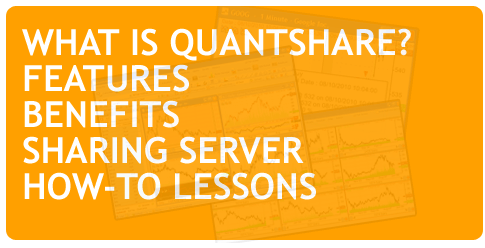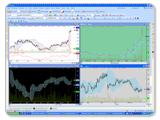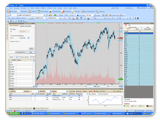 Trading either in stocks or in the Forex market can be a tricky affair. It is a high risk method of investing your money and you therefore need to have a good trading strategy in place. Traditionally, people relied on the news and market analysis to make the best trades. Nowadays we have trading systems. Trading systems are quite popular around markets such as commodities, stock and foreign exchange. Reason being they provide a better analysis than any human would and therefore reduce the risks associated with trading. For those who have trading systems as their trading strategy, you are by now aware that trading systems benefits far outweigh insider analysis. This is because the analysis provided is based on statics and market trends. But how do you know whether or not your trading system is a profitable one? Well, below is information to help you out. Qualities of a profitable trading system Trading using an automated system is a good strategy. There are simple ways to know whether or not you have a profitable trading system. These are: • Results • Usability • Robustness An easy way to find out if you have a system that is profitable is by the results it gives you. The whole point of having a trading system is to ensure that you can get results. This therefore goes without saying that when your system is giving you constant losses, then it is time to let go of it. The system should not be complicated in such a way that you are unable to operate it. Another good quality of a profitable trading system is that you should be able to comprehend its analysis. You can consider that you have a profitable trading system only after it passes several robustness checks. Some examples of these tests are: Backtest on a different market, small changes of rules parameters… Trading may be tricky but it is not rocket science. At the end of the day, the analysis is based on facts and information easily available. You should therefore be able to understand the analysis your system is using. Benefits of a Profitable Trading System • Less Risk • Cost Effective • Saves Time • No Emotional trading • Increased Performance The list of benefits you get from having a profitable trading system is endless. There is less risk involved because your system uses statistics, facts, market trends and other facts to base its analysis. This means that you are sure the analysis you are getting is highly accurate. Emotional trading can lead to many losses, because basic facts are eliminated when coming up with your analysis. The system is cost effective since you do not have to spend money on getting data feeds or inside information. The amount of time you spend performing trades is also minimal since the system does all the analysis for you and can even perform the trades on your behalf. Your performance on the market improves significantly seeing as the system works for you as long as the market is open. How to make Profits with a Trading System A trading system does not automatically guarantee you profits. Trading in whatever market you choose is an art. Below are some things you should do to ensure that you have a profitable trading experience: • Research • Keep track of trades • Manage the trades • Have a support system Whenever you are trading, it helps to do your research and have some information on the currency, stock or commodity that you out to invest in. Always keep track of your trades by checking on how well they are doing. Manage your trades by pulling out of a trade that you are unsure of, to avoid losses. It also helps to have a support system in place. This could be by joining a club of investors or having an expert in the industry guide and mentor you. Having an automated trading system is a great way to go about trading. Evaluate your trading system by weighing the profits and losses you receive. Ultimately, a good system is one that is result oriented. comments powered by Disqus |

|
|
|
|







